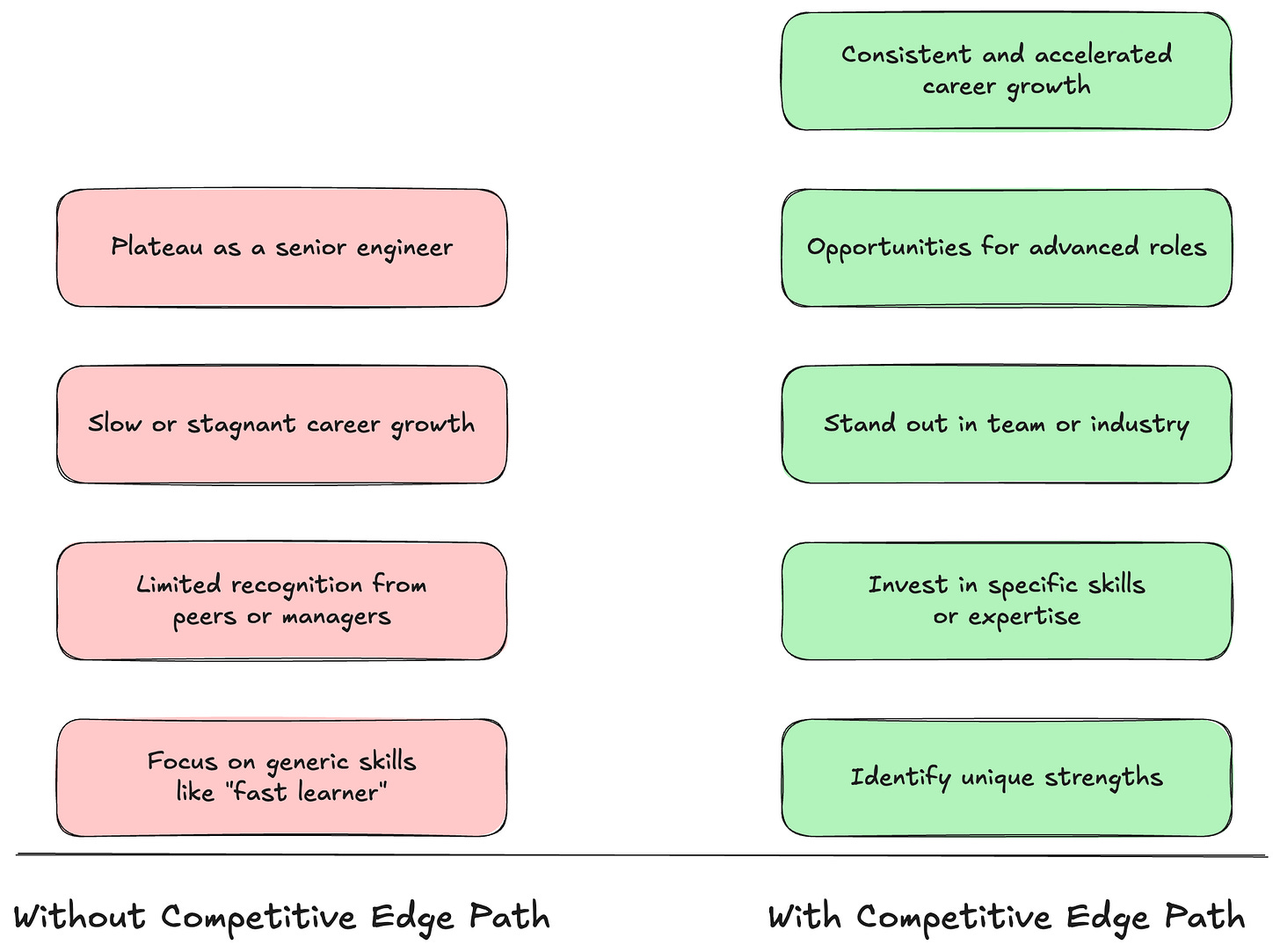From Mediocre to Mastery: Own Your Growth as a Standout Data Engineer
Should you go deep into technical skills or balance them with business? Find out which path leads to data engineering success.
Most data engineers hit a point in their careers where they feel stuck. You’ve mastered the day-to-day tasks of building pipelines, managing data warehouses, and supporting analytics teams.
You’re competent and reliable, but things feel less clear when it comes to advancing beyond your current role. How do you move past “just another senior engineer” and become the kind of data engineer people genuinely rely on?
Data engineering is a unique career. You’re at the crossroads of technology and business. You deal with the technical complexity of data systems, but you’re also expected to deliver business value. That dual expectation creates opportunity and confusion. Unlike software development, where career paths are better defined, data engineering doesn’t always offer a clear roadmap for growth.
The good news is that there are proven paths forward—but it takes focus to stand out. In this article, you’ll learn about two key paths for growing your career: the Technical Specialist Path and the Tech-Business Leader Path. You’ll also discover how to define your competitive edge, avoid common pitfalls, and make informed decisions that align with your strengths.
😓 Why Data Engineering Career Growth Is Hard
Many data engineers struggle with career growth, and there are several reasons why:
⚙️ The industry evolves: New tools and frameworks a few times per year. What’s cutting-edge today might be obsolete in just a couple of years. It almost feels like the front-end development world.
⚖️ Data engineering is multi-faceted: You’re expected to have deep technical expertise while understanding business needs. Balancing both can feel overwhelming.
🎭 Unclear career paths: In software engineering, roles like senior developer, tech lead, and architect are well-defined. In data engineering, roles are often vague and vary between companies.
Many engineers also fall into the trap of “just doing the work” without proactively planning their career growth. They focus on being good at their tasks but don’t consider what makes them stand out or what direction they want to grow. That’s where defining your competitive edge becomes essential.
🔪 Define Your Competitive Edge
Standing out in data engineering requires more than being “good at your job.” Everyone in this field is expected to be competent. To grow beyond mediocrity, you must define what makes you unique—your competitive edge.
The Harsh Truth About “Fast Learners” 🧑🎓
I recently had a chat with someone who wanted to maximise their job security. When I asked what their competitive edge is, they said: “I'm a fast learner.”
At first, it might seem like a great strength—after all, being a quick learner is valuable in tech. But I knew I had to be honest with them. I said, “Every tech person believes they learn fast.”
They looked surprised, so I explained further. In this field, being a fast learner is the baseline expectation. It’s not a differentiator—it’s what’s required to keep up with the pace of change. Engineers must adapt quickly to new technologies, frameworks, and methodologies. It’s part of the job, not what sets you apart.
I asked them a follow-up question: “What makes you better than the competition?” They paused and said, “I’m good with my tasks, and I deliver them on time.”
I had to be direct again: “That’s great, but it’s not enough. Being good with tasks is expected at a senior level. It doesn’t make you stand out—it just keeps you in the pack.”
Many data engineers claim their strength is “learning fast” or “getting things done.” While those are important traits, they’re baseline expectations in tech. They don’t make you stand out. To differentiate yourself, you need something more specific.
If you want real career security, don’t focus on job security—focus on market security.
💼 Job security is about holding onto your current role.
💰 Market security is about having skills and expertise so valuable that other companies actively want you.
And to have market security, you need something unique—a competitive edge.

How to Identify Your Competitive Edge 🔎
Here’s how to figure out what sets you apart:





